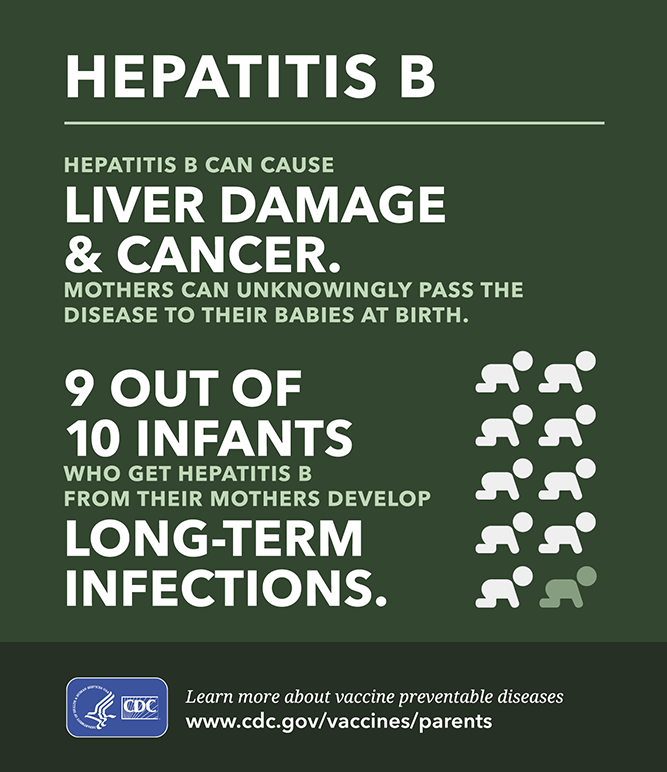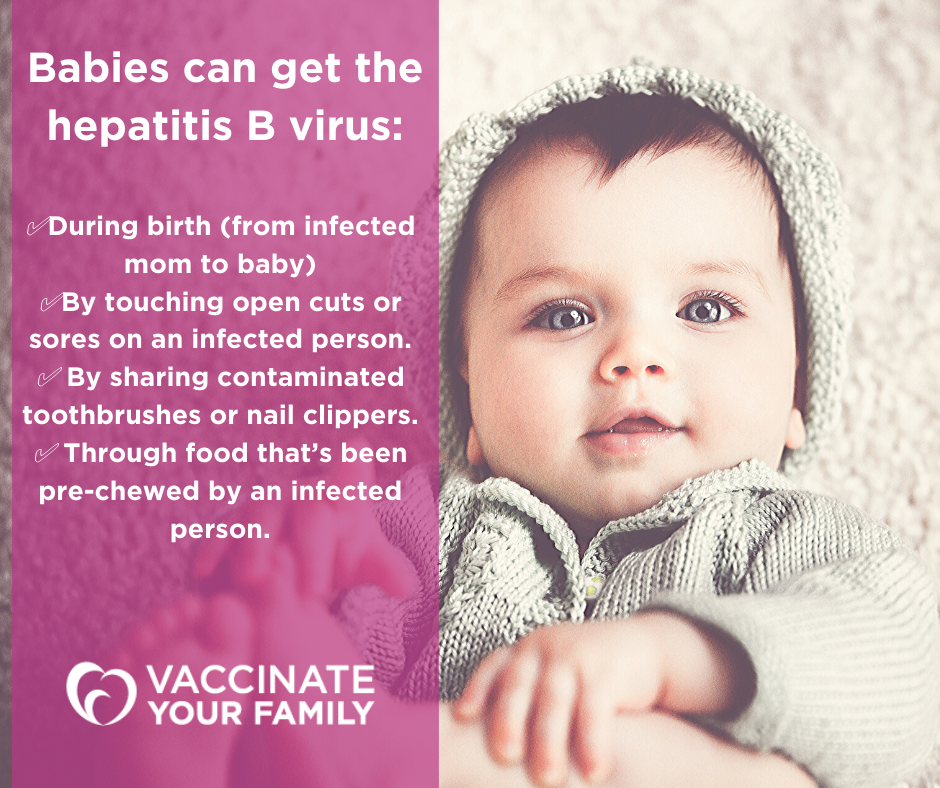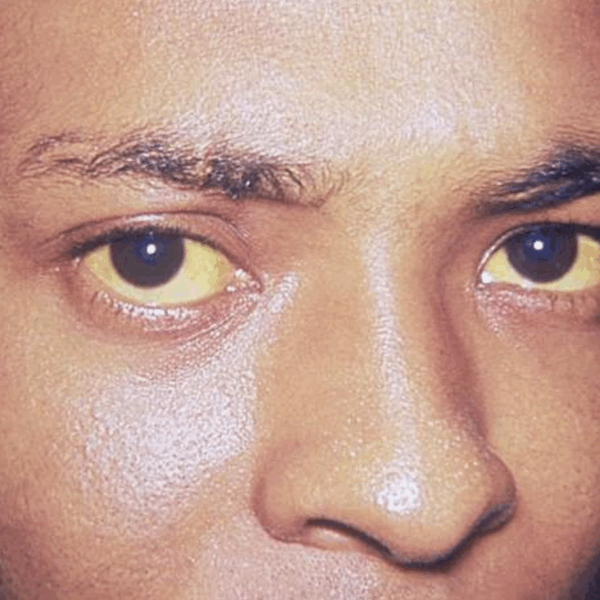Hepatitis B
What is Hepatitis B?
Hepatitis B is a contagious liver infection caused by the hepatitis B virus. When someone is first infected, they may develop an acute (short-term) infection. The severity of this infection can range from mild, with few or no symptoms, to severe, potentially requiring hospitalization.
While some people are able to fight off the infection, others may develop a chronic (lifelong) infection. Chronic hepatitis B can lead to serious complications such as liver failure, liver cancer, cirrhosis (permanent scarring of the liver), and death.
Within the US, up to 1.89 million people may be living with chronic hepatitis B infection and each year about 3,000 people in the US are newly infected.
On this page, you can explore how hepatitis B spreads, who is at risk, what the symptoms are, and how to prevent hepatitis B.
Within the US, up to 1.89 million people may be living with chronic hepatitis B infection and each year about 3,000 people in the US are newly infected.
How is the hepatitis B virus spread?
Hepatitis B virus spreads through contact with the blood, semen, or other body fluids of an infected person. The virus can be transmitted even when the infected person has no symptoms or is unaware they are infected.
Who is at risk for hepatitis B?
Anyone can get hepatitis B, but certain life circumstances, jobs, and behaviors can increase the risk of infection. Learn more about specific risk factors for hepatitis B.

- Sharing personal items like toothbrushes, razors, or medical equipment (eg, glucose monitors) with an infected person
- Unprotected sex
- Direct contact with the blood or open wounds of an infected person
- Sharing needles, syringes, or drug paraphernalia
- Exposure to blood from needlesticks or other sharp objects used by an infected person

An infected family member or caregiver can pass hepatitis B to your baby in several ways:
- During pregnancy or birth (from an infected mother to her baby)
- Through a bite from an infected person
- By touching open cuts or sores of an infected person
- By sharing personal items like toothbrushes with an infected person
- From food chewed by an infected person (some parents may pre-chew food for their baby – this is not recommended)
Approximately 90% of newborns who become infected with hepatitis B develop chronic hepatitis B, which can lead to serious health issues, including liver damage, liver cancer, liver failure, and even death.
Hepatitis B can spread without symptoms.
Even when the infected person has no symptoms, the virus can still be transmitted.
What are the symptoms of hepatitis B?
Many people with hepatitis B don’t have symptoms. While symptoms of acute (short-term) and chronic (long-term) hepatitis B can be similar, most people with chronic hepatitis B don’t feel sick until many years later.
Symptoms of hepatitis B include:
- Dark urine or light-colored stools
- Feeling very tired
- Fever
- Joint pain
- Loss of appetite
- Nausea, stomach pain, or vomiting
- Yellowing of the skin or eyes (jaundice)


Hepatitis B symptoms usually start to appear around 90 days after being exposed to the virus.
How can I prevent hepatitis B?


Babies and Children
For the best protection against hepatitis B, children should receive all three recommended doses of the hepatitis B vaccine (HepB). It is important to note that babies born to hepatitis B positive mothers have a 90% chance of being healthy if they are given the first dose of hepatitis B vaccine at birth. The vaccine should be given at the following ages:
- Shortly after birth (the first dose is crucial and should be given within 24 hours of birth)
- Between 1 and 2 months
- Between 6 and 18 months


Adolescents/Teens
All children and adolescents younger than 19 years of age who did not receive the Hep B vaccine when they were younger should be vaccinated.


Adults
The CDC recommends hepatitis B vaccine for unvaccinated adults 19–59 years old and adults 60 years and older with risk factors for hepatitis B. All adults over 60 years of age may receive a hepatitis B vaccination even if they don’t have risk factors.


Pregnancy
When a pregnant mother seeks prenatal care, she will be given a blood test to check for hepatitis B infection. This is important because people infected with hepatitis B can pass the virus to their baby during pregnancy or birth. Unfortunately, some mothers may contract the disease between the date of the test and delivery and pass it to their babies unknowingly. Approximately 90% of newborns who become infected with hepatitis B virus develop chronic hepatitis B, which can lead to serious health problems including liver damage, liver cancer, liver failure, and even death. The good news is that babies born to hepatitis B positive mothers have a 90% chance of being healthy if they are given the hepatitis B vaccine at birth, followed by a second dose in 1-2 months, and a 3rd dose on or right after the baby’s 6 month birthdate.
CDC Recommended Vaccination Schedules
To ensure that your entire family is up to date on their vaccines, check out the following CDC recommended immunization schedules and talk to your healthcare provider.
When a mom has hepatitis B, the baby needs the full hepatitis B vaccination series, including the dose given at hospital after delivery. There’s an additional medicine that can help protect her baby against hepatitis B, called the hepatitis B immune globulin (HBIG). HBIG is given at birth to help the baby’s body fight the hepatitis B virus. This medication works best when the baby gets it within the first 12 hours of their life. This does not replace the hepatitis B vaccine. For the best protection, the baby also needs the full hepatitis B vaccination series.
The hepatitis B birth dose the first hepatitis B vaccine dose, given to your baby within 24 hours of birth, helps protect your baby from contracting hepatitis B from a mother who may not be aware that she is infected as well as from friends and family who may not know they’ve been infected. The hepatitis B vaccine is recommended for all newborns.


